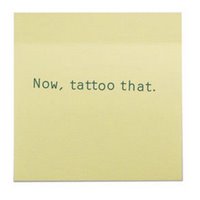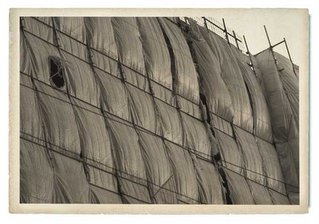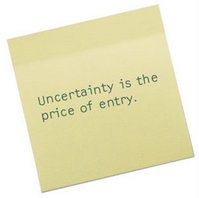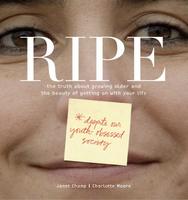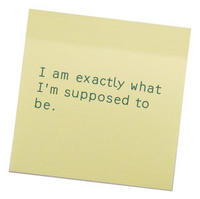Women of a certain age (and you know who you are) are suffering. Maybe not loudly. Maybe not openly. Maybe not even fully aware. But they—we—are suffering nonetheless. Ageism is running rampant. The worship of youth is knocking down other subjects of veneration. Pedestals are being overturned, only to be built under people who have not lived enough to stand upon them.
For a woman of a certain age to look in the mirror and feel fully proud, fully pleased, fully accepting is a rare event to say the least. There is a sort of conspiracy afoot, is there not?
Let's consider:
Why do more and more advertising briefs specify a target audience between the ages of 18 and 24 (maybe on a generous day, the top end is stretched to 35) when the majority of disposable income is located elsewhere? Is it because 18 to 24 year-olds are dipping into other people's pockets to make influential purchases, or is it because more and more of us with disposable incomes respond to messages tailored to the 24 year-old brain? Because more and more of us want to be 24?
Why are female characters in movies who display the hutzpah, know-how, professional seniority and life experience of much older women typically given to female actors in their twenties, even at the risk of the film's story losing credibility?
Why do ads which ask us to consider a diverse panoply of anti-age products consistently feature models who have no wrinkles?
These are crude and obvious examples, but it is just to say, again, that we are surrounded by images of youth where youth is not even appropriate, and this perversion of reality to sell appeal cajole seduce, has created another Enemy, and She is Us.
We don't spend a lot of time whining about the contents of the previous paragraphs, because we're intelligent women, and we know, well, we just know what we know: That it's a lot of b.s. We skim over it, ignore it, move on. But what our intelligence is less capable of combatting is the judge that resides within us. Perhaps the existence of this judging female voice predates modern marketing. Perhaps Cleopatra was driven to the asps because her beauty was, at last, leaving her. But we would place bets that this is not the case. As strong as we are, as smart as we are, as self-effacing and outward looking, the constant, non-stop societal obsession with youth has seaped into us, turning us too often against ourselves, when we are, in fact, better—and stronger and wiser and fuller—than we were ten, twenty, thirty years ago.
This is why we chose the word "ripe." Because women of a certain age are mature and ready and open and capable. This is why we must create a movement. Because the tide of youth-obsession must be turned. And this is why we must do it now. Because, every day that goes by that the inner judge is not beaten back, is another day not fully lived.
Let us be ripe. Let us see ourselves as ripe, not raw. Let us spread the respect of ripeness. And let us begin immediately, beause ripe won't wait.
 We spend so many years fretting over all our insecurities and worries and fears. And if we can't finally shove that aside by the time we're forty or fifty, when will we? What does it take for us to say, "Don't judge me by my age or the effects of gravity or whether I'm perfectly perfect on the outside. Judge me by my contributions, what I give back and what I've learned, whatever wisdom I've accumulated (or had thrust upon me without my even quite knowing it), what I'm willing to fight to the death for"?
We spend so many years fretting over all our insecurities and worries and fears. And if we can't finally shove that aside by the time we're forty or fifty, when will we? What does it take for us to say, "Don't judge me by my age or the effects of gravity or whether I'm perfectly perfect on the outside. Judge me by my contributions, what I give back and what I've learned, whatever wisdom I've accumulated (or had thrust upon me without my even quite knowing it), what I'm willing to fight to the death for"? 